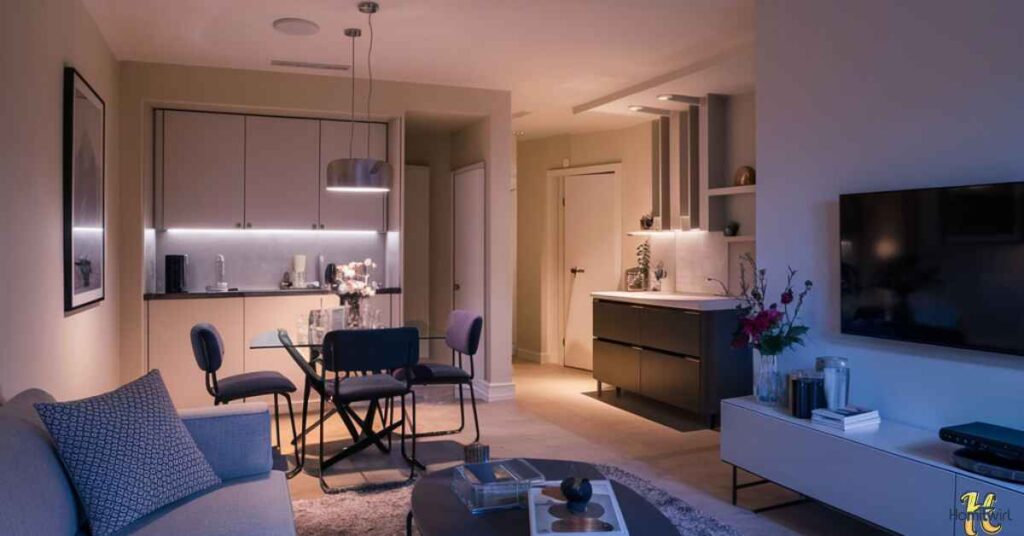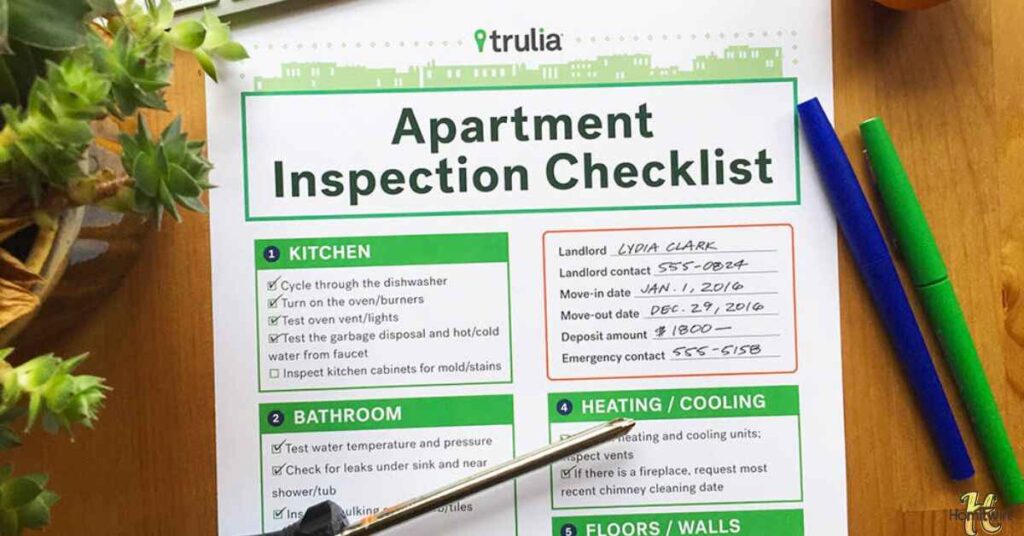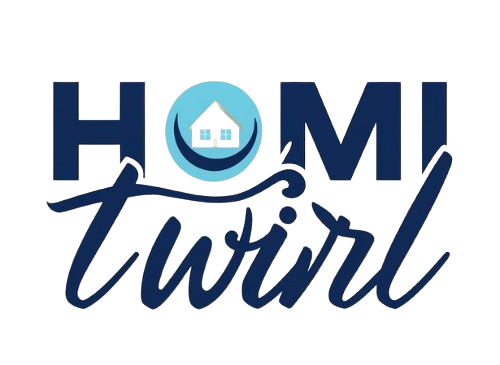Renting out a room in your property can be a high-quality manner to earn more income and utilize unused area.
First off, examine your local policies and make certain you’re legally allowed to do so. Next, prepare the room by using cleansing and making necessary maintenance. Determine a fair rental price by means of researching similar listings on your region.
Create clear and concise rental agreements to defend each yourself and the tenant. In the end, put it up for sale the room thru various channels inclusive of online systems or local community boards to draw capability renters.
How To Rent Out A Room In Your House In 10 Steps

Here is an established guide on how to rent out a room in your private home in 10 steps.
- Studies nearby policies: familiarize yourself with neighborhood legal guidelines and rules concerning renting out rooms to your location. Make sure compliance with zoning laws, constructing codes, and condo rules.
- Put together the Room: clean and DE clutter the room, making any vital repairs or upgrades to ensure it is in precise circumstance for tenants.
- Determine condominium phrases: decide at the phrases of the apartment, such as rent quantity, protection deposit, lease length, and any house policies or regulations.
- Set an aggressive hire price: studies comparable apartment listings in your neighborhood to decide a truthful and competitive lease price in your room.
- Create an apartment settlement: Draft a clear and complete condo settlement outlining the phrases and conditions of the condominium, including fee info, responsibilities of both events, and any policies or rules.
- Display screen ability Tenants: conduct thorough background and reference checks on capability tenants to ensure they’re dependable and sincere.
- Talk expectations: Have open and sincere discussions with ability tenants about expectancies, rules, and obligations to ensure mutual expertise and agreement.
- Acquire Deposits and hire: gather a security deposit and primary month’s hire from the tenant earlier than they flow in. sincerely define the fee schedule for future lease payments.
- Provide necessary facilities: supply the room with fundamental amenities consisting of a mattress, table, chair, and storage area. Make sure get right of entry to shared facilities consisting of kitchen, bathroom, and laundry.
- Hold verbal exchange: keep regular communication with your tenant to deal with any issues or issues that could stand up, and ensure a high-quality and harmonious living surroundings for both parties.
Make Sure The Room Is Tenant-Ready

Here is a concise list of steps to ensure the room is tenant-prepared.
Read This Blog: HOW TO TELL IF FUSE IS BLOWN IN HOUSE
- Smooth and DE clutter: thoroughly clean the room and eliminate any pointless litter to create a welcoming area.
- Repair any harm: address any damages or upkeep problems in the room, along with broken fixtures, leaky faucets, or damaged walls.
- Make sure safety capabilities: take a look at that the room has ok protection capabilities, including smoke detectors, carbon monoxide detectors, and fireplace extinguishers.
- Supply correctly: grant the room with critical fixtures gadgets along with a mattress, mattress, desk, chair, and garage area, making sure comfort and capability.
- Provide primary amenities: ensure the room is prepared with primary facilities which include smooth linens, towels, toiletries, and get admission to shared centers just like the kitchen and rest room.
- Take a look at Utilities: confirm that each one utility in the room are in working order, together with electricity, heating, air con, and internet connectivity.
- Keep in mind Aesthetic attraction: add simple touches to decorate the room’s aesthetic attraction, consisting of fresh paint, ornamental accents, or art work.
- Address private ness issues: set up window treatments or blinds to ensure private ness for the tenant and provide a comfy lock at the room’s door.
- Test Accessibility: make certain easy get right of entry to the room and shared centers, specifically if there are stairs or different obstacles.
- Look into thoroughly: conduct a final inspection of the room to ensure it meets all tenant necessities and is prepared for occupancy.
Consider the Criteria of Your Ideal Tenant
Here is a based approach to do not forget the standards of your best tenant.
- Outline your ideal Tenant Profile: pick out the traits, lifestyle options, and behaviors of the kind of tenant you choose to have in your private home. Bear in mind elements which include age, profession, life-style, habits, and cleanliness requirements.
- Prioritize Compatibility: determine what characteristics or developments are most essential to you in a tenant, together with reliability, communiqué competencies, respectfulness, and compatibility along with your family dynamics.
- Set up condominium standards: Set unique condominium standards primarily based for your ideal tenant profile, which include requirements such as employment or earnings stability, credit score history, apartment references, and any specific choices or regulations you have.
- Display capacity Tenants: expand a thorough screening technique to assess capacity tenants towards you’re hooked up standards. Request rental applications, conduct historical past assessments, verify employment and income, and call references to evaluate suitability.
- Speak expectancies: really talk your expectancies, residence policies, and any unique requirements to ability tenants at some point of the utility and interview procedure. Make sure mutual expertise and agreement on vital factors of the tenancy.
- Ask applicable Questions: in the course of interviews or discussions with capability tenants, ask applicable questions to assess their suitability and compatibility along with your rental assets. Inquire about their life-style, each day routines, preceding condominium experiences, and motives for in search of accommodation.
- Don’t forget private Interactions: pay attention to private interactions and verbal exchange style while comparing ability tenants. Verify their responsiveness, professionalism, and willingness to adhere in your condominium terms and situations.
- Trust your Instincts: trust your instincts and instinct whilst evaluating potential tenants. If something feels off or raises worries at some stage in the screening technique, don’t forget exploring other options or accomplishing extra due diligence.
- Keep fairness and Compliance: make certain fairness and compliance with fair housing legal guidelines and policies during the tenant selection technique. Keep away from discrimination based totally on blanketed traits together with race, faith, gender, or familial status.
- Finalize selection carefully: as soon as you’ve got recognized an appropriate candidate who meets your standards and aligns together with your expectancies, finalize the tenant selection process by means of supplying the condo opportunity and formalizing the lease settlement.
Create a Transparent Rental Listing

Seeking a respectful tenant to join our household. Furnished room includes bed, desk, and closet. Shared access to kitchen, bathroom, and laundry. Rent covers all utilities and Wi-Fi.
Also Read This Blog: HOW MANY PEOPLE FIT AT AN 8 FOOT TABLE
Located in a safe neighborhood with amenities nearby. No smoking or pets permitted. Rent: [Insert Rent Amount]/month. Deposit: [Insert Deposit Amount]. Available for immediate occupancy. Contact for further details or to schedule a viewing.
Set the Right Rent Price
Setting the proper hire charge is important for attracting tenants whilst ensuring honest reimbursement for your own home. Bear in mind those steps.
- Research similar Listings: research comparable condo residences for your region to apprehend the market rates and opposition.
- Compare your property’s features: determine the particular functions, facilities, and situation of your private home in comparison to others inside the vicinity.
- Calculate working prices: component in charges consisting of loan payments, property taxes, coverage, protection fees, and utilities.
- Bear in mind demand and place: recall the demand for condo properties on your place and the convenience of your private home’s vicinity.
- Investigate Tenant Affordability: consider the earnings stages and affordability of capability tenants in your target marketplace.
- Be flexible but realistic: Be inclined to modify the hire charge based totally on marketplace feedback and tenant interest, but also make sure it covers your costs and affords an inexpensive return on funding.
- Element in vacancy risk: bear in mind the ability vacancy chance and alter the rent charge thus to minimize income loss.
- Seek professional advice: talk over with real estate retailers or belongings control experts for insights and steerage on setting the proper lease charge.
By using cautiously thinking about these elements, you may set an aggressive and fair lease rate that draws tenants at the same time as maximizing your condo income.
Become Familiar with Landlord Laws
Turning into familiar with landlord legal guidelines is essential for making sure a clean and legally compliant condo manner. Right here’s how.
- Studies local rules: apprehend the landlord-tenant laws unique on your jurisdiction, along with apartment agreements, eviction methods, security deposit policies, and tenant rights.
- Seek advice from legal assets: get right of entry to professional criminal assets inclusive of authorities websites, landlord associations, or felony experts specializing in real property law for comprehensive statistics and guidance.
- Assessment Tenancy legal guidelines: make yourself familiar with laws concerning honest housing, discrimination, habitability standards, belongings renovation, and tenant privacy rights to uphold ethical and legal requirements for your rental commercial enterprise.
- Live updated: frequently screen updates and modifications to landlord-tenant legal guidelines to make certain compliance and avoid potential felony issues or liabilities.
- Educate yourself: Take gain of landlord training programs, workshops, or on line publications to deepen your information of applicable laws and exceptional practices in belongings management.
- Document the whole lot: preserve thorough information of rental agreements, communications with tenants, property inspections, renovation sports, and economic transactions to guard you in case of disputes or prison lawsuits.
- Are looking for expert advice: discuss with criminal specialists or assets control professionals for customized advice and assistance in navigating complex prison troubles or disputes.
With the aid of prioritizing knowledge and compliance with landlord laws, you could set up a hit and legally sound condo commercial enterprise at the same time as safeguarding your rights and obligations as a landlord.
Why Rent Out A Room In Your Home?

Renting out a room in your house can offer numerous benefits, inclusive of.
- More Earnings: Renting out a room provides an additional source of income, supporting offset mortgage bills, assets taxes, or other expenses associated with homeownership.
- Monetary Flexibility: The greater earnings from renting out a room can improve economic stability; allowing homeowners to shop for destiny goals, repay money owed, or put money into different ventures.
- Make use of unused space: Renting out a spare room lets in owners to utilize underutilized space in their home, maximizing its capacity and fending off wasted rectangular photos.
- Shared costs: Sharing family costs along with utilities, internet, and protection charges with a tenant can assist reduce the monetary burden of homeownership.
- Companionship: Renting out a room can offer companionship and social interplay for owners who stay alone, presenting the opportunity to shape significant relationships with tenants.
- Security benefits: Having a tenant within the domestic can enhance safety by way of imparting an additional presence on the assets, lowering the danger of burglary or vandalism.
- Cultural exchange: Renting out a room to a tenant from a specific background or culture can facilitate cultural exchange and develop homeowners’ perspectives.
- Assisting Others: Renting out a room can provide low-priced housing options for individuals in need, such as students, young professionals, or people experiencing temporary economic difficulty.
Basic, renting out a room in your own home may be a mutually beneficial association that gives economic, social, and sensible advantages for owners.
Can You Legally Rent Out A Room In Your Home?
In lots of jurisdictions, it’s far legal to rent out a room in your property, but there are policies and considerations to be aware of.
- Neighborhood zoning legal guidelines: test neighborhood zoning legal guidelines and regulations to ensure that renting out a room in your property is allowed to your region. a few areas may have restrictions at the variety of tenants or the length of leases.
- Homeowner’s affiliation (HOA) policies: in case you stay in a community governed by a property owner’s affiliation, assessment their rules and rules regarding condominium houses. a few HOAs may additionally have restrictions or guidelines for renting out rooms.
Apartment allows and Licenses: positive municipalities may additionally require landlords to acquire condo permits or licenses before renting out a room. Be sure to investigate and comply with any necessary lets in or licensing necessities.
- Constructing Codes and protection rules: make sure that the room you ought to hire out meets building codes and safety requirements, which includes necessities for egress, fire protection, and habitability.
- Tax Implications: understand the tax implications of renting out a room in your home, inclusive of capability rental profits taxes, deductions for costs associated with the condo, and any local occupancy taxes.
- Condominium Agreements: Create a clean and complete condo settlement outlining the terms and situations of the condominium, such as lease quantity, period, residence guidelines, and tenant responsibilities.
- Tenant Rights: familiarize yourself with tenant rights and landlord responsibilities on your jurisdiction, which includes laws regarding safety deposits, eviction procedures, and tenant privacy rights.
Via know-how and adhering to relevant laws and policies, house owners can legally and responsibly hire out a room in their domestic even as minimizing the threat of felony problems or disputes.
Consulting with legal professionals or local housing government can provide further guidance on unique rules for your region.
Laws To Check Before Renting Out A Room

Before renting out a room in your home, it’s essential to check relevant laws and regulations to ensure compliance and avoid legal issues. Here are key laws to consider.
- Zoning Laws: Determine if your property is zoned for rental use and if there are any restrictions on the number of tenants or type of rental allowed in your area.
- Landlord-Tenant Laws: Familiarize yourself with local landlord-tenant laws governing rental agreements, security deposits, eviction procedures, and tenant rights and responsibilities.
- Building Codes and Safety Regulations: Ensure that your property meets building codes, safety standards, and habitability requirements, including provisions for fire safety, egress, and structural integrity.
- Rental Permits and Licenses: Check if your municipality requires landlords to obtain rental permits or licenses before renting out a room, and ensure compliance with any applicable regulations.
- Homeowner’s Association (HOA) Rules: If your property is governed by a homeowner’s association, review HOA rules and regulations regarding rental properties, including any restrictions or guidelines for renting out rooms.
- Tax Regulations: Understand the tax implications of rental income, including reporting rental income on your tax return, deducting expenses related to the rental, and complying with local occupancy taxes or rental property taxes.
- Fair Housing Laws: Be aware of fair housing laws prohibiting discrimination based on protected characteristics such as race, religion, gender, familial status, disability, or national origin.
- Privacy Laws: Respect tenant privacy rights by understanding and adhering to laws governing landlord entry, surveillance, and disclosure of personal information.
- Environmental Regulations: Ensure compliance with environmental regulations, such as lead paint disclosure requirements or regulations regarding asbestos or mold remediation.
- Insurance Requirements: Review your homeowner’s insurance policy to determine if renting out a room affects your coverage and consider obtaining additional liability insurance or landlord insurance to protect yourself and your property.
By conducting thorough research and consulting with legal professionals or housing authorities, you can ensure compliance with relevant laws and regulations before renting out a room in your home.
Checklist To Rent A Room

Here’s a checklist to help you rent out a room in your home.
- Understand Local Regulations: Research and understand local zoning laws, rental regulations, and homeowner association rules pertaining to renting out a room.
- Prepare the Room: Clean, DE clutter, and make any necessary repairs or improvements to ensure the room is in good condition for tenants.
- Determine Rental Terms: Decide on rental terms including rent amount, security deposit, lease duration, and any house rules or restrictions.
- Set a Competitive Rent Price: Research comparable rental listings in your area to determine a fair and competitive rent price for the room.
- Create a Rental Agreement: Draft a clear and comprehensive rental agreement outlining the terms and conditions of the rental, including payment details, responsibilities of both parties, and any rules or policies.
- Screen Potential Tenants: Conduct background and reference checks on potential tenants to ensure they are reliable and trustworthy.
- Communicate Expectations: Have open and honest discussions with potential tenants about expectations, rules, and responsibilities to ensure mutual understanding and agreement.
- Collect Deposits and Rent: Collect a security deposit and first month’s rent from the tenant before they move in. Clearly outline the payment schedule for future rent payments.
- Provide Necessary Amenities: Furnish the room with basic amenities such as a bed, desk, chair, and storage space. Ensure access to shared facilities such as kitchen, bathroom, and laundry.
- Maintain Communication: Maintain regular communication with your tenant to address any concerns or issues that may arise, and ensure a positive and harmonious living environment for both parties.
By following this checklist, you can effectively rent out a room in your home while ensuring compliance with regulations and fostering a positive tenant-landlord relationship.
Prepare The Room
Preparing the room for rent is essential to attract potential tenants and ensure their comfort. Here’s a checklist to help you prepare the room.
- Clean Thoroughly: Start by cleaning the room from top to bottom, including floors, walls, windows, and any fixtures or furniture.
- DE clutter: Remove any unnecessary items or clutter to create a spacious and inviting environment for tenants.
- Repair Any Damage: Address any damages or maintenance issues in the room, such as broken fixtures, chipped paint, or damaged flooring.
- Paint if Necessary: Consider giving the room a fresh coat of paint in a neutral color to brighten the space and make it more appealing to tenants.
- Furnish Appropriately: Furnish the room with essential furniture items such as a bed, mattress, desk, chair, and storage space. Ensure the furniture is clean, comfortable, and in good condition.
- Provide Basic Amenities: Equip the room with basic amenities such as clean linens, towels, toiletries, and a trash bin. Consider adding extra touches like a bedside lamp or decorative accents to enhance the room’s appeal.
- Check Lighting and Ventilation: Ensure the room has adequate lighting and ventilation to create a comfortable and functional living space for tenants.
- Install Window Treatments: Install blinds, curtains, or shades on windows to provide privacy and control natural light entering the room.
- Test Utilities: Verify that all utilities in the room are in working order, including electricity, heating, air conditioning, and internet connectivity.
- Add Personal Touches: Consider adding personal touches such as artwork, plants, or decorative pillows to make the room feel welcoming and homely.
By following this checklist, you can effectively prepare the room for rent and create a comfortable and inviting living space for potential tenants.
Create Tenant Profile
Creating a tenant profile can help you identify the type of tenant you’re looking for and find the best match for your rental property. Here’s how to create a tenant profile.
- Demographic Information: Consider the age range, occupation, and family status of your ideal tenant. Are you looking for a young professional, a student, a couple, or a family?
- Income and Employment: Determine the income level and employment stability you require from potential tenants. This helps ensure they can afford the rent and are financially responsible.
- Lifestyle Preferences: Think about the lifestyle preferences that align with yours and your household. Do you prefer tenants who are quiet and introverted, or sociable and outgoing? Consider factors like smoking, pets, and cleanliness habits.
- Rental History: Assess potential tenants’ rental history and references to gauge their reliability and suitability as tenants. Look for tenants with a positive rental track record and good references from previous landlords.
- Length of Stay: Decide on the desired duration of the tenancy, whether you prefer short-term or long-term tenants. This helps you find tenants whose housing needs align with yours.
- Communication and Compatibility: Consider the communication style and compatibility with potential tenants. Look for tenants who are responsive, respectful, and willing to adhere to your rental terms and house rules.
- Tenant Screening Criteria: Establish specific screening criteria based on the tenant profile you’ve created, including requirements such as credit score, rental history, income verification, and criminal background checks.
- Flexibility and Openness: Be open to flexibility and adjustments based on individual circumstances and potential tenants’ qualifications. While it’s essential to have a tenant profile in mind, it’s also important to remain open to diverse backgrounds and situations.
By creating a clear and detailed tenant profile, you can effectively target your rental advertising, screen potential tenants, and find the right fit for your rental property.
Frequently asked question
Do I need to inform my mortgage lender before renting out a room?
Yes, it’s important to check your mortgage agreement and inform your lender about your intention to rent out a room to ensure compliance with loan terms.
What should I include in a rental agreement for renting out a room?
A rental agreement should outline rent amount, lease duration, house rules, security deposit details, and tenant responsibilities to ensure clarity and mutual understanding.
Can I evict a tenant if they don’t follow the house rules?
Yes, as a landlord, you have the right to evict tenants for violating the terms of the rental agreement, including breaching house rules, after following proper legal procedures.
How should I determine the rent price for the room?
Research comparable rental listings in your area to set a competitive rent price based on factors like room size, amenities, location, and market demand.
Do I need to report rental income on my taxes if I rent out a room?
Yes, rental income must be reported on your tax return, but you may be eligible for deductions for expenses related to renting out the room.
Should I conduct background checks on potential tenants?
Yes, conducting background checks, including criminal history and rental references, can help ensure the reliability and suitability of potential tenants.
Can I restrict smoking or pets in the rented room?
Yes, as the landlord, you have the right to set rules regarding smoking, pets, or other behaviors in the rental agreement to maintain the condition of the property.
What should I do if my tenant falls behind on rent payments?
Communicate with the tenant to understand the situation and try to work out a solution. If necessary, follow legal procedures for eviction as outlined in your local landlord-tenant laws.
Conclusion
Renting out a room in your house can be a financially profitable and jointly beneficial undertaking. via knowledge nearby policies, getting ready the room efficiently, screening tenants cautiously, and preserving clean communiqué throughout the rental technique, you may create an advantageous enjoy for each yourself and your tenants.
Whether you are searching for additional profits, companionship, or honestly looking to utilize unused area, renting out a room can offer numerous blessings at the same time as contributing to a strong and harmonious dwelling environment. With right planning and interest to detail, you could efficaciously navigate the procedure of renting out a room and enjoy the advantages it brings to your property and lifestyle.







